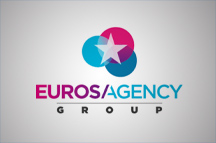GK Strategy’s European partner, Euros / Agency offers its insight on the latest developments from Brussels.
Is Brussels moving towards a ‘Blue Deal’?
Following the approval of the European Green Deal in 2020, the concept of an EU ‘Blue Deal’ - a strategy aimed at addressing Europe’s water challenges - has been gaining more traction. It is now a serious campaign issue for some political stakeholders and voters ahead of the European elections, taking place from 6-9 June. Valérie Hayer MEP, Spitzenkandidat (lead candidate) for the Renew Europe group, is the key proponent of the Blue Deal and her group has made its implementation a major campaign pledge.
Supporters of the Blue Deal will argue that climate change, coupled with urbanisation and industrialisation, is exerting increasing pressure on already limited water resources. According to the European Environment Agency, around 30% of Europeans are affected by water scarcity each year. This issue is especially prevalent in Southern Europe. Last year the EU estimated that drought-related damage would cost about €9 billion per year and would soar to an annual €40 billion if global warming reached 3°C. Faced with this reality, the EU’s current framework for protecting freshwater and marine resources is deemed insufficient.
Despite a shared acknowledgment that action is needed, a Blue Deal means different things to different parties and groups in Brussels. For Renew, the Blue Deal should be focused on ocean conservation – mainly, the increased protection of marine areas and the sustainability of maritime and fisheries resources. Meanwhile, both the European Economic and Social Committee and other parties in the European Parliament view the Blue Deal as a close counterpart to the Green Deal. They hope to create a legislative framework that could address the consequences of a future water crisis for all economic and social activities within the EU. This would include a cross-sector approach to issues such as droughts and floods, irrigation and ensuring clean drinking water, as well as biodiversity loss.
While there is support for tackling environmental issues within the EU, the extent to which the Blue Deal is a priority is still unclear. In March, the Water Resilience Initiative was removed from the European Commission’s agenda. It was hoped that the initiative would outline the EU’s position on sustainable water use and would help to define the EU’s overarching water strategy. However, the future of the Blue Deal remains uncertain. The European elections could be pivotal, as a favourable balance of power in Brussels could see Blue Deal initiatives fly up the agenda.
If you would like more information on the article, contact Sloan Moreau (sloan.moreau@eurosagency.eu).














